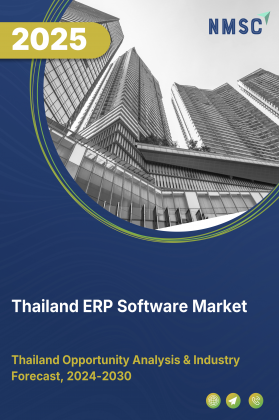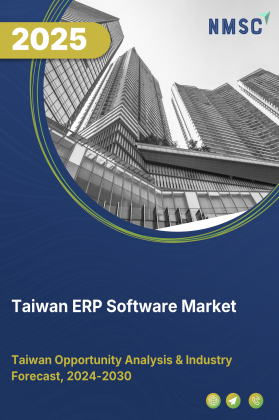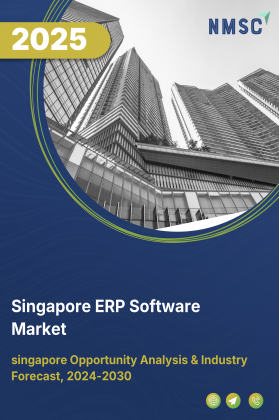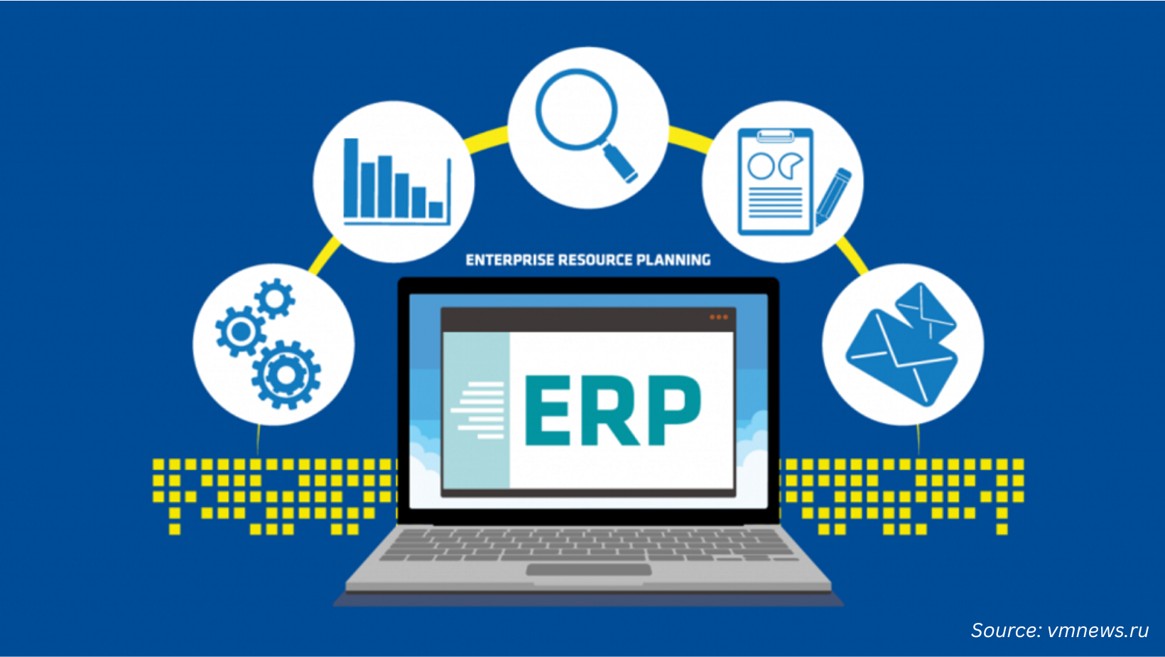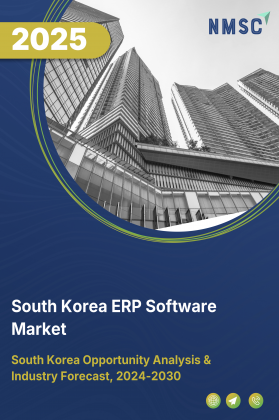
South Korea ERP Software Market by Component (Software, and Services), Deployment (On-Premise, Cloud, and Hybrid), Business Function (Enterprise Asset Management, Financial Management, Human Capital Management, and Others), Application (Manufacturing, BFSI, Healthcare, Retail & Distribution, Government, IT & Telecom, and Others), and End Users (Small & Medium Enterprises, and Large Enterprises) – Trends and Forecast, 2025–2030.
Industry: ICT & Media | Publish Date: 17-Oct-2025 | No of Pages: N/A | No. of Tables: N/A | No. of Figures: N/A | Format: PDF | Report Code : IC3616
Industry Outlook
The South Korea ERP Software Market size was valued at USD 2.08 billion in 2024 and is projected to grow to USD 2.59 billion by 2025. Additionally, the industry is expected to continue its growth trajectory, reaching USD 5.62 billion by 2030, with a CAGR of 16.80% from 2025 to 2030.
In the market, government investments in AI are accelerating innovation, as initiatives support the integration of intelligent automation, predictive analytics, and machine learning into next-generation platforms. The aerospace and defence sector is also fuelling ERP adoption, with companies seeking robust systems to manage complex operations and regulatory requirements. However, challenges such as high implementation costs, outdated infrastructure, and frequent technology upgrades pose barriers, particularly for smaller firms. Despite this, IoT integration presents significant opportunities by enabling real-time monitoring and operational optimization, positioning ERP systems as vital tools for industrial efficiency and digital transformation.
Government Investment in AI Drives Intelligent ERP Market Growth
In 2024, the South Korean government committed USD 585 million to domestic AI research and development to boost technological advancement across industries. This investment is expected to accelerate the evolution of ERP software market by integrating AI capabilities like intelligent automation, predictive analytics, natural language processing, and machine learning. These innovations enable smarter workflows in finance, supply chain, and manufacturing, supporting the shift toward cloud-based intelligent ERP platforms and enhancing operational efficiency for businesses of all sizes.
Aerospace Sector Growth Fuels ERP Market Expansion
South Korea’s aerospace and defence sector is driving a surge for ERP software, which is projected to reach USD 4.46 billion by 2025 with a CAGR of 9.38% through 2033. As government initiatives push for modernization and digital transformation, and commercial aviation rapidly expands, companies require robust ERP systems to manage complex production processes, ensure regulatory compliance, streamline supply chains, and leverage real-time analytics. Integration of advanced technologies like AI and IoT further underscores the need for scalable, data-driven ERP platforms, positioning them as critical enablers of efficiency and innovation across the sector.
High Costs and Infrastructure Gaps Restraint ERP Implementation
Despite strong growth drivers, ERP adoption in South Korea is limited by the high cost of system implementation, especially for small businesses unable to justify upfront investments. Outdated infrastructure and lack of standardization further complicate integration efforts. Rapid technological changes, especially in AI and aerospace, also necessitate frequent ERP updates and upgrades, adding complexity and increasing total cost of ownership, which hinders wider market penetration.
IoT Integration Delivers Opportunities for the ERP Market
The integration of Internet of Things (IoT) technology with ERP systems is rapidly becoming a major growth driver, delivering real-time data visibility and advanced operational control. IoT-enabled ERP platforms enable businesses to track inventory, monitor equipment performance, and predict maintenance needs, significantly increasing efficiency in sectors like manufacturing and logistics. In March 2025, Epicor Software Corporation introduced Epicor Kinetic 2025, a next-generation ERP solution featuring sophisticated IoT capabilities for real-time monitoring and predictive maintenance in manufacturing environments. This innovation underscores IoT’s transformative impact on ERP functionalities and highlights the growing demand for intelligent, connected enterprise solutions.
Competitive Landscape
The market players operating in the South Korea ERP Software industry include SAP SE, Microsoft Corporation, Oracle NetSuite, Rockwell Automation, Workday, Inc., Ramco Systems, Marketech International Corporation, DOUZONE BIZON, Shearwater Korea, Intuit Inc., Tricor Group, Infor, DYS Solutions Pvt. Ltd., ECOUNT Co., Ltd., Dezan Shira & Associates and others.
South Korea ERP Software Market Key Segments
By Component
-
Software
-
Service
By Deployment
-
On Premise
-
Cloud
-
Hybrid
By Business Function
-
Enterprise Asset Management (EAM)
-
Record Assets (Asset Mgmt)
-
Analytics & BI
-
Disposal of Assets
-
Others
-
-
Financial Management System
-
Core Financials
-
Corporate Performance Mgmt (CPM)
-
Financial Consolidation
-
Others
-
-
Human Capital Management (HCM)
-
Talent Management
-
Administrative HR
-
Workforce Management
-
Others
-
-
Manufacturing and Operations
-
Production Planning and Scheduling Products
-
Production Ops and Control Products
-
Manufacturing Information Mgmt Products
-
Others
-
-
Supply Chain Management (SCM)
-
Inventory management
-
Warehouse management
-
Transportation management
-
Procurement
-
Contract Management
-
-
Others
By Application
-
Manufacturing
-
BFSI
-
Healthcare
-
Retail & Distribution
-
Government
-
IT & Telecom
-
Construction
-
Aerospace Defense
-
Other Industries
By End Users
-
Small and Medium-Sized Enterprise
-
Large Enterprise
Key Players
-
Microsoft Corporation
-
Oracle NetSuite
-
Rockwell Automation
-
Ramco Systems
-
Marketech International Corporation
-
DOUZONE BIZON
-
Shearwater Korea
-
Intuit Inc.
-
Tricor Group
-
Infor
-
DYS Solutions Pvt. Ltd.
-
ECOUNT Co., Ltd.
-
Dezan Shira & Associates
Report Scope and Segmentation
|
Parameters |
Details |
|
Market Size in 2025 |
USD 2.59 Billion |
|
Revenue Forecast in 2030 |
USD 5.62 Billion |
|
Growth Rate |
CAGR of 16.80% from 2025 to 2030 |
|
Analysis Period |
2024–2030 |
|
Base Year Considered |
2024 |
|
Forecast Period |
2025–2030 |
|
Market Size Estimation |
Billion (USD) |
|
Growth Factors |
|
|
Companies Profiled |
15 |
|
Market Share |
Available for 10 companies |
|
Customization Scope |
Free customization (equivalent up to 80 working hours of analysts) after purchase. Addition or alteration to country, regional, and segment scope. |
|
Pricing and Purchase Options |
Avail customized purchase options to meet your exact research needs. |

















 Speak to Our Analyst
Speak to Our Analyst



